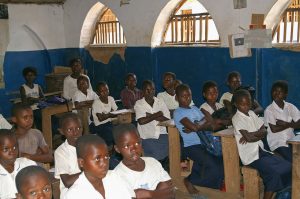Early this year I read Frankopan’s Silk Road. The book tries to give a different view of world history with a focus on Asia, in particular central Asia. I liked the book, especially as I was interested in the history of Central Asia since I was about 10 years old.
I think even for a history buff the book contains a lot of fascinating details, from details about slavery in Europe to the way the Vikings did trade across Eurasia to the Sogdians.
There were a couple of points I found weak:
1- some of the regions or countries Frankopan sees as emerging might have been “emerging” mostly because they have been oil and gas exporting countries and we know the times of oil and gas might have already be over. His view on development in Russia and the countries of the Middle East is a bit too optimistic.
2- although Frankopan does well in indicating how many times the West plundered other regions he does not seem to be judging the same kind of processes when they were carried out by the others.
I am still waiting for a book that is going to cover in a more comprehensible way the expansion of China.
Still, the book is a good start for talking about the East, especially now in the times of the coronavirus, when China is booming and Europe and North America are even more dependent on everything coming from there.
